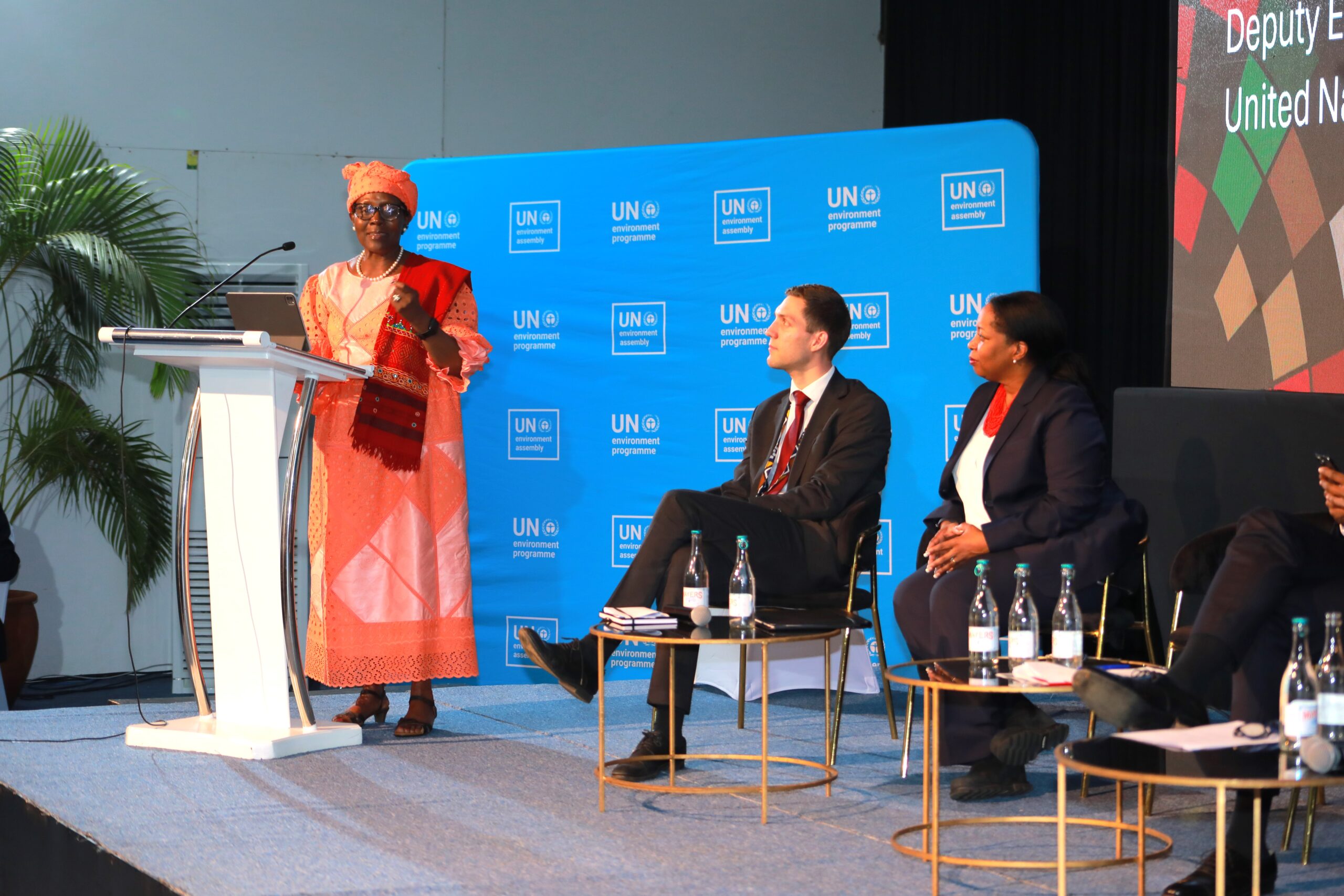- Malawi, Ghana, and the UN Environment Progamme join the Nature Crime Alliance
- They join the United States, Norway, Gabon, UNODC, and INTERPOL, along with a range of international, civil society, and Indigenous Peoples’ rights organisations
-
“These crimes are global crimes, and need a global response” – Michael Usi, Minister for Natural Resources and Climate Change, Malawi
NAIROBI 1 MARCH – Momentum is building in the fight against nature crime as more countries join a new global alliance to strengthen international and inter-sector collaboration.
Malawi and Ghana confirmed their participation in the Nature Crime Alliance during an official side event at the UN Environment Assembly in Nairobi last night (29 Feb).
The news follows the announcement on Tuesday that the UN Environment Programme (UNEP) has joined the initiative, which aims to raise political will, mobilise financial commitment, and bolster operational capacity to fight nature crime around the globe.
The Alliance officially launched in August 2023, and was co-created in recognition that current efforts to tackle nature crime are often carried out in isolation, with less inter-sector collaboration than is needed. Its current Co-Chairs are Norway and the United States, with its Secretariat hosted by World Resources Institute with participation from the UN Office on Drugs and Crime.
Speaking at the UNEA-6 side event, Andreas Bjelland Eriksen, Minister for Climate and the Environment, Norway, said: “Illicit flows of goods and capital drains developing countries of public resources and undermines trust in the rule of law, national institutions, and democratic processes.
“We need to learn from what works, alongside clearer political visibility and cross border collaboration.”
Jennifer R Littlejohn, Acting Assistant Secretary, Bureau of Oceans and International Environmental and Scientific Affairs, Department of State, United States, commented: “Now is the time to scale up our collective efforts to break down silos to fight nature crime globally.
“The Alliance…provides a platform for exchanges on best practices, technical support, resources and funding opportunities, and fosters adoption of tools and technologies to improve the response to nature crimes.”
Nature crime – which includes illegal forms of logging, mining, wildlife trade, land conversion, and crimes associated with fishing – is driving environmental degradation and biodiversity loss; devastating local communities; fueling financial crime and corruption; and challenging the rule of law.
As governments and actors around the world strive to tackle the triple planetary crisis, nefarious criminal networks involved in nature crime are actively undermining their efforts.
It will not be possible to achieve our global environmental goals without addressing the scourge of nature crime.
Yulia Stange, Director of the Nature Crime Alliance, commented: “As we have heard consistently throughout UNEA-6 and in other fora, there is a pressing need for more collaboration between governments, law enforcement entities, international and civil society organisations, and Indigenous Peoples and local communities. The Alliance aims to meet this need.
“We are pleased that Ghana, Malawi, and UNEP are participating in this key global initiative, and I encourage governments and organisations who share our ambition to eradicate nature crime to join us in the Alliance.”

Comments on joining the Nature Crime Alliance from new members
Ghana
John Allotey, Chief Executive of Ghana’s Forestry Commission, said: “Ghana takes the issue of nature crime extremely seriously. We are committed to protecting our natural resources and the communities that depend on them.
“These crimes are global crimes, and need a global response. That’s why we’re pleased to be joining the Nature Crime Alliance to bolster our capacity and build the relationships that are essential in fighting these crimes.”
Malawi
Michael Usi, Minister for Natural Resources and Climate Change, Malawi, said: “Malawi is making a concerted effort to tackle nature crime, as is reflected in recent prosecutions of wildlife trafficking networks. Joining the Nature Crime Alliance will help us to build on that momentum and develop solutions with other countries and sectors to win the fight against nature crime.”
UNEP
Elizabeth Mrema, UN Assistant Secretary General and Deputy Executive Director of UNEP, said: “UNEP recognizes the critical importance of addressing nature crime, a menace that threatens environmental sustainability, peace, security, and the rule of law globally.
“Joining the Nature Crime Alliance aligns with our strategic objectives, and I believe it will significantly enhance our joint efforts, especially in light of our commitment to the UN Common Approach to implement the Global Biodiversity Framework.”
– END –
Images attached:








